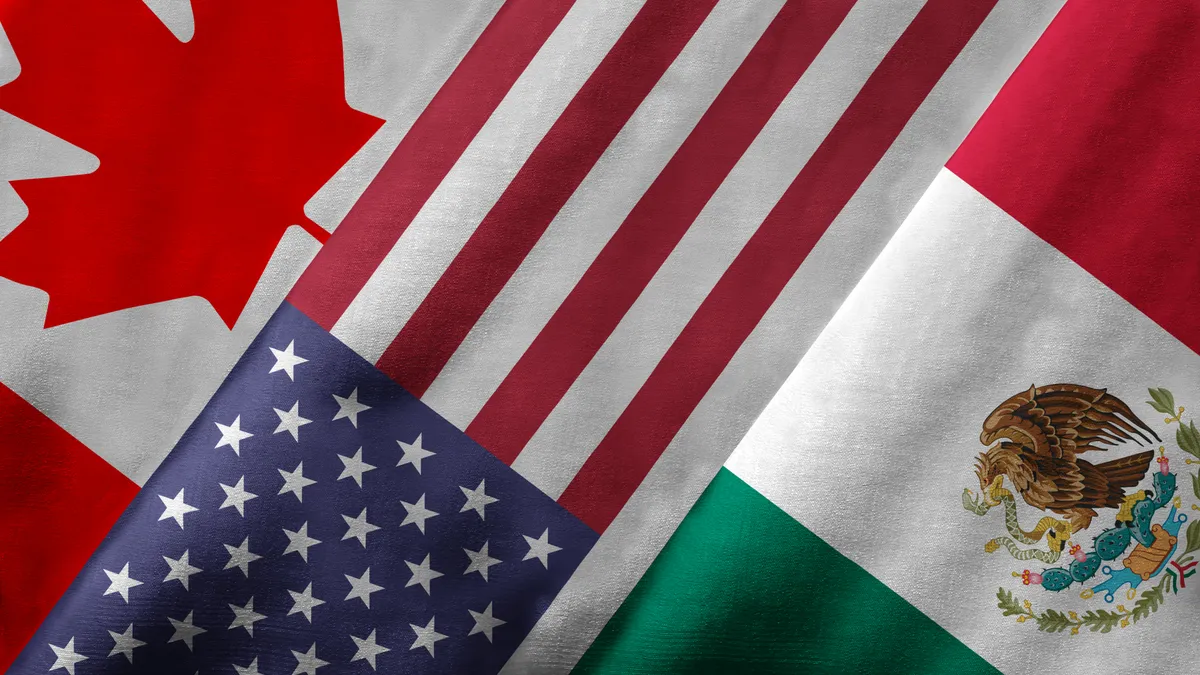Dive Brief:
- The United States-Mexico-Canada Agreement (USMCA) has the potential to benefit the medtech industry if implemented, according to a new report released late last week by the International Trade Commission (ITC).
- The ITC review found USMCA's provisions on intellectual property rights (IPR) would aid U.S. medical device companies by boosting protections for trade secrets, patents, administrative enforcement and more.
- AdvaMed, in an interview with MedTech Dive, called out the trade pact's sections on improving customs and trade facilitation, reducing technical barriers to trade, codifying certain regulatory practices and implementing anticorruption provisions. USMCA would lead to increased trade of medical devices, according to the U.S. medical device trade group.
Dive Insight:
The ITC report notes that the U.S. medical device industry is "heavily reliant" on imported components from Mexico. USMCA focuses on avoiding technical barriers to trade of medical devices by addressing standards, technical regulations and conformity assessment procedures.
The medical device industry exhibits a "statistically significant positive relationship between trade flows and IPR protections," the ITC said. Specifically, increased domestic IPR protections would reduce trade costs for medical devices by 8.2% in Canada and 11.2% in Mexico, it found.
Ralph Ives, AdvaMed executive vice president of global strategy and analysis, urged Congress to ratify the agreement "as expeditiously as possible," arguing it would boost patient access to new medical technology across the three countries and constitutes an improvement on the North American Free Trade Agreement.
"We are also very pleased that the ITC report identifies specific benefits for the medical technology industry, including transparency and procedural fairness for reimbursement, specific best practices for medical technology product approvals, good regulatory practices, customs and trade facilitation, and improved intellectual property protection," Ives said in a statement.
But while industry and the Trump Administration are backing the trade agreement, ratification may still be an uphill battle.
Regulatory convergence between the three countries poses an opportunity to reduce what Steven Bipes, AdvaMed associate vice president of global strategy and analysis, calls an invisible tariff of 20% due to current nonalignment in how regulations are developed and implemented. He estimated that over a decade, USMCA could reduce such inefficiencies by 15%.
"The key novelty is that Mexico's COFEPRIS [Federal Commission for Protection against Health Risks of the United Mexican States] will be required now to get into and use the Medical Device Single Audit Program," Bipes said. "Canada already requires it, in fact, Canada is the only country in the world that requires that you use the MDSAP."
But ITC said that while "onerous standards and regulatory procedures" have "been found to exert a statistically significant, negative impact on medical device trade," the impacts of the agreement are likely to be small.
"There are already important points of regulatory convergence among the three countries. For example, each employs a risk-based classification system to regulating medical devices, which is consistent with international best practices," the ITC report states. "Further, both Canada and Mexico already rank favorably in terms of having relatively short estimated approval times for advanced medical technologies — which the United States specializes in producing."
As a whole, ITC found USMCA would raise U.S. GDP by $68.2 billion and create 176,000 jobs if implemented across the whole economy.











